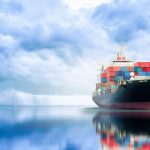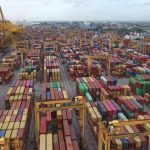UAE’s Fujairah must step up investments for storage and supply of new alternative fuels as these markets are still lacking traction at the world’s third-largest bunkering hub despite the urgency for maritime decarbonisation, industry executives said on Wednesday.
The maritime industry must seek out alternative fuels to meet carbon emission reduction targets set out by the U.N.’s International Maritime Organization, which include cutting carbon emissions by 40% from 2008 levels by 2030 and overall greenhouse gas (GHG) emissions by 50% by 2050.
Despite being a key bunkering port, Fujairah has been lagging behind ther hubs like Singapore and Rotterdam in gearing up for alternative fuel markets such as liquefied natural gas (LNG), biofuels and methanol.
Potential investments at Fujairah should involve repurposing tankage to accommodate these future fuels, said Law Say Huat, general manager at storage company Vopak Horizon Fujairah Terminals Ltd.
“There is a lot of development in terms of new energy, in terms of decarbonization in other hubs. We should not lose out in terms of that (at Fujairah),” Law told the Fujairah Bunkering and Fuel Oil Forum (FUJCON) 2023 on Wednesday.
However, there are hurdles when it comes to stepping up these investments, including a lack of collaboration.
“Probably the thing that is really missing is the engagement amongst registered stakeholders,” said Nizamuddin Noorali, general manager at storage terminal company GTI Fujairah.
“Everybody’s doing their own bit and in a bit of isolation… there is no central engagement whereby the value chain can be added to the extent of terminals,” Noorali added.
Lack of digitalisation and transparency will also hinder adoption.
“If you look at a bunker operation today on offshore Fujairah and the way that it’s being measured, quantities are still done manually,” TFG Marine’s head of bunkering Kenneth Dam said on the forum’s sidelines, adding that such manual operations are more time-consuming, and more prone to human error.
In contrast, top bunker hub Singapore has stepped up efforts in digitalising bunkering operations, which helps to pave the way for new fuels, he added.
Unlike Singapore, spot supplies for these fuels have been slow to take off at Fujairah due to a lack of immediate demand, trade sources said on the sidelines of the forum, though supplies will have to kick off in the coming years.
By 2050, methanol and LNG are expected to take the top market share of alternative bunker fuels at Fujairah, followed by biofuels and ammonia, showed results of an online poll at the FUJCON forum.
“I would hope that two years from now, when we are back here in Fujairah (for the next FUJCON), we are no longer just talking about being able to deliver LNG bunkers, but that we actually have the capability,” industry coalition SEA-LNG’s chairman Peter Keller told the forum.
Fujairah is poised to remain as one of the world’s largest bunkering hubs. The port had a record year of oil-handling volumes in 2022 and is expected to register robust demand for storage going forward.
Source: gCaptain






